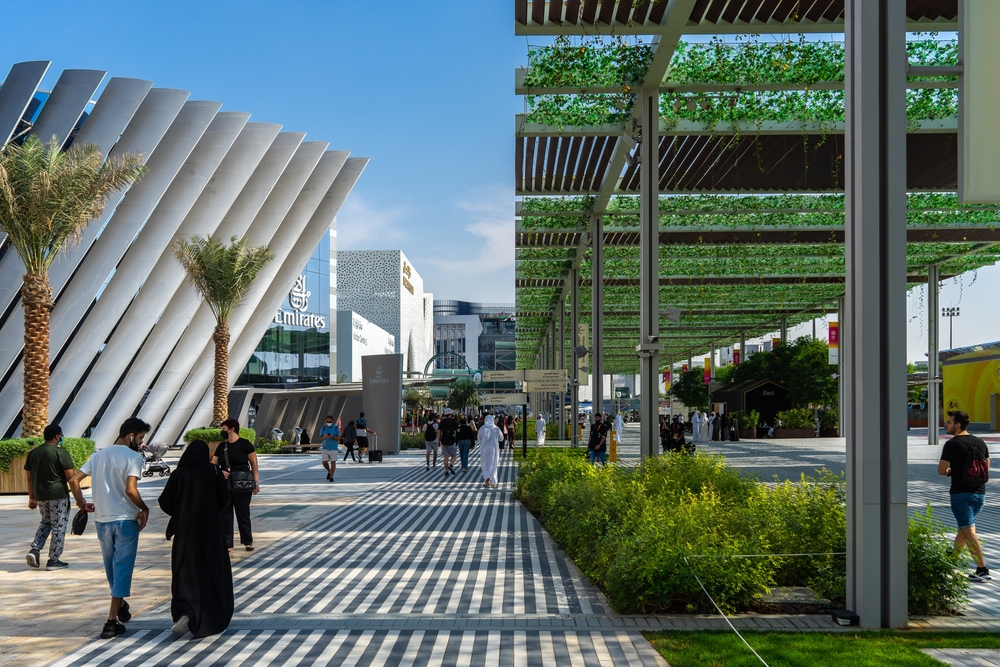Polystorm - Geocellular Water Management System
Polystorm is an efficient and versatile geocellular water management system for Sustainable urban Drainage Systems (SuDS) compliant attenuation, det

What was once considered a frankly unattainable aspiration of environmentalists, has recently escalated into a full-blown commercial phenomenon. From governing bodies and multinational corporations, right down to SMEs, we are currently witnessing a collective transition into what is known as a ‘green economy’.
A green economy refers to an innovative system of economic activities that are low carbon, resource efficient, and socially inclusive. Through its principles, a green economy contributes to improved human wellbeing and social equity, all while reducing environmental risks and ecological scarcities.
5 Principles of a Green Economy
Green Economy in the UAE
The earliest talks of a green economic agenda came about as a result from the 2008 global economic crisis, offering a more sustainable method of rebuilding the economy. By 2014, 65 countries around the world were already implementing green policies and 48 countries were in the midst of developing national green economy strategies[1].
Among these, much to everyone’s surprise, was the UAE - one of the top global exporters of fossil fuels. The pace and depth of the UAE’s engagement with the green economy agenda is without a regional parallel. A fact that has recently been highlighted through Expo 2020 Dubai.
Expo 2020 and Sustainability
Expo 2020 Dubai was designed to be the most sustainable world Expo in history. The RISE strategy was created to integrate a number of processes and methodologies across every aspect of operations to demonstrate how businesses, cities and even countries can transition into a green economy.
RISE Guidelines for Sustainable Operations
The objective of the RISE Guidelines was to position Expo 2020 as a catalyst for sustainability across the entire region and leave behind a sustainable legacy. Expo 2020 exemplified the success of the strategy, which can be adopted by individuals and organisations for years to come.
The Legacy of District 2020
Although Expo 2020 has now come to an end, its sustainable initiatives are here to stay. In fact, at least 80% of Expo 2020’s permanent infrastructure will be repurposed at District 2020.
Specifically designed to serve as the model global community for the future, District 2020 will use state-of-the-art innovation, science, and sustainability to create a human-centric smart city. The city is designed to be adaptable, evolving and responding to our dynamic global environment.
How Will District 2020 Support a Green Economy?
Polypipe Middle East’s Role in a Green Economy
Our award-winning sustainable water management system, Permavoid, was integrated into movable tree planters as a net-zero, self-irrigating solution. Removing the need for conventional drip lines means the tree planters can be easily relocated anywhere within District 2020. Permavoid was also installed on the roofs of the Opportunity and Mobility pavilions as a source control strategy, reducing the risk of flooding.
Another one of our sustainable water management systems, Polystorm, was installed under the UAE, Sustainability, and Mobility pavilions to collect and store water channelled from rainwater outlets and surface drains.
By collecting, filtering, and storing water, both Permavoid and Polystorm reduced overall water consumption at Expo 2020 while also minimising the risk of flooding, and will continue to do so in District 2020. Our unique technology supports a circular and green economy and contributed to the LEED Gold and Platinum certification granted to the pavilions.
What’s Next?
A global transition towards a green economy will require a fundamental shift in priorities, not just on a government level, but across all industries and all businesses. Expo 2020 Dubai successfully pushed the concept of green economy into the global spotlight. Now, all eyes are on District 2020 to demonstrate the viability and long-term benefits of such an approach, in order to encourage widespread adoption.
Are you looking to play a part in shaping the global green economy? Our expertise in the field of sustainable urban drainage and water management can help you achieve your sustainability objectives and position yourself as a leader in this global transition.
With our help, you can increase ROI, support sustainability, and enhance wellbeing - all through our customisable sustainable water management strategy, specifically designed to meet your project requirements. Simply get in touch to find out how!
Tel: +971 (0) 4 518 3000
Email: middleeast@polypipe.com
Polystorm is an efficient and versatile geocellular water management system for Sustainable urban Drainage Systems (SuDS) compliant attenuation, det
Permavoid is a shallow geocellular water management system aimed at managing stormwater and surface water at source, as close to where it falls as pos